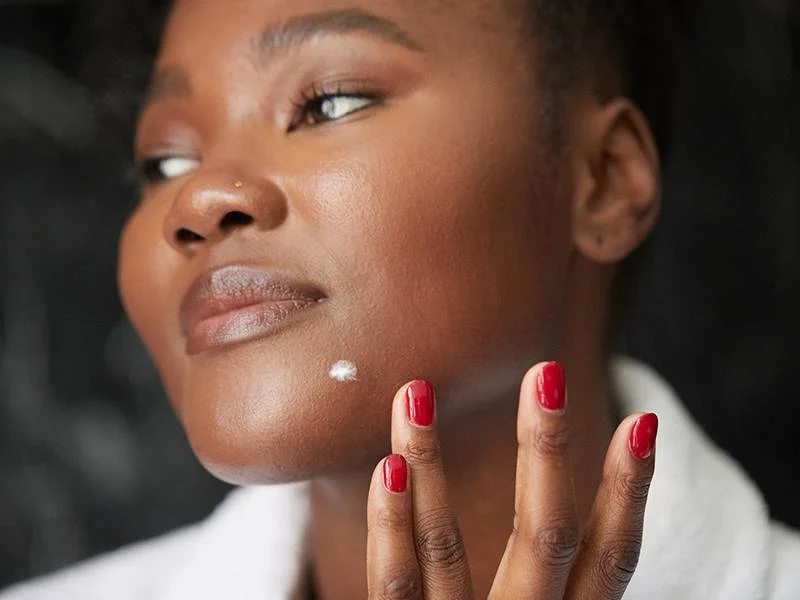10 Diy Methods For Clearing Up Pimples In Five Days

Pimples, also known as zits, are small, raised bumps on the skin that appear when hair follicles become clogged with oil and dead skin cells. They are often inflamed and can be painful. Pimples are a common skin condition, especially among teenagers and young adults.
While it’s not guaranteed to completely eliminate pimples within 5 days, there are several home remedies you can try to speed up the healing process and reduce their appearance.
Spot Treatments:
- Ice: Applying ice wrapped in a cloth to the pimple for 5-minute intervals several times a day can help reduce inflammation and swelling.
- Crushed Aspirin: Aspirin contains salicylic acid, which exfoliates dead skin and unclogs pores. Crush an aspirin into a paste with a little water and apply it directly to the pimple for 10-15 minutes before rinsing it off.
- Tea Tree Oil: Dilute tea tree oil with a carrier oil like jojoba oil and apply it to the pimple with a cotton swab. Tea tree oil has antibacterial and anti-inflammatory properties.
- Honey: Honey is a natural humectant and has antimicrobial properties. Apply a thin layer of raw honey to the pimple and leave it on for 20-30 minutes before washing it off.
- Aloe Vera: Aloe vera has soothing and anti-inflammatory properties. Apply fresh aloe vera gel directly to the pimple several times a day.
Face Masks:
- Green Tea Mask: Green tea contains antioxidants and has anti-inflammatory properties. Steep a green tea bag in hot water, let it cool, and apply it to your face for 15 minutes before rinsing it off.
- Honey and Baking Soda Mask: Mix honey and baking soda into a paste and apply it to your face for 10-15 minutes before rinsing it off. Baking soda has exfoliating properties and can help remove dead skin cells.
- Oatmeal Mask: Oatmeal has anti-inflammatory and soothing properties. Grind oatmeal into a fine powder and mix it with water or honey to form a paste. Apply the mask to your face for 15 minutes before rinsing it off.
General Tips:
- Wash your face twice a day with a gentle cleanser.
- Exfoliate your skin 1-2 times a week to remove dead skin cells.
- Moisturize your skin regularly.
- Avoid popping or picking at your pimples.
- Drink plenty of water and eat a healthy diet.
- Consider taking over-the-counter acne medications that contain salicylic acid or benzoyl peroxide.
How to remove pimples naturally and permanently in 3 days?
Unfortunately, there’s no guaranteed way to remove pimples naturally and permanently in just 3 days. While certain natural remedies may help reduce inflammation and promote healing, achieving permanent results usually takes longer and requires a consistent approach.
Can toothpaste remove pimples?
No, toothpaste is not an effective or recommended way to remove pimples. While some ingredients in toothpaste, like baking soda, alcohol, and hydrogen peroxide, can be drying and potentially shrink a pimple temporarily, they also have significant drawbacks:
Irritation: Toothpaste is formulated for teeth, not skin. It can be harsh and irritating, leading to redness, dryness, peeling, and even burning. This can be especially damaging to sensitive skin. Inflammation: The harsh ingredients in toothpaste can trigger inflammation in the pimple, making it worse and potentially causing scarring. Clogged pores: Some ingredients in toothpaste, like fluoride, can clog pores, which can worsen acne. Ineffectiveness: There is no scientific evidence that toothpaste is effective in treating acne. In fact, studies have shown that it can be harmful.
Instead of using toothpaste, there are many safe and effective over-the-counter and prescription treatments for acne available. These treatments are formulated to address the underlying causes of acne and prevent future breakouts.
Here are some tips for treating pimples
- Wash your face twice a day with a gentle cleanser.
- Apply an over-the-counter acne treatment that contains benzoyl peroxide or salicylic acid.
- If your acne is severe, see a dermatologist for prescription medication.
- Avoid picking at your pimples, as this can make them worse and lead to scarring.
- Keep your hair clean and off your face.
- Avoid touching your face with your hands.
- Manage stress, as this can worsen acne.
What helps pimples overnight?
While completely eliminating a pimple overnight is unlikely, there are several options that can help reduce its appearance and inflammation significantly by morning:
Over-the-counter products:
- Benzoyl peroxide: This is a common ingredient in acne treatments and works by killing bacteria that contribute to pimples. Apply a 2.5-5% benzoyl peroxide spot treatment directly to the pimple before bed.
- Salicylic acid: This ingredient helps exfoliate dead skin cells and unclog pores. Look for a 2% salicylic acid gel or spot treatment.
Natural remedies:
- Tea tree oil: This essential oil has antiseptic and anti-inflammatory properties. Dilute tea tree oil with a carrier oil like jojoba oil before applying it to the pimple.
- Aloe vera: This plant has soothing and anti-inflammatory properties. Apply fresh aloe vera gel directly to the pimple.
- Ice: Wrapping an ice cube in a washcloth and applying it to the pimple for 10-15 minutes can help reduce swelling and redness.
Additional tips:
- Do not pick or pop the pimple. This can worsen inflammation and scarring.
- Wash your face gently with a mild cleanser before applying any treatment.
- Moisturize your skin after applying any treatment.
- Get enough sleep and manage stress, as both can contribute to acne.
Here are some additional options that may not work overnight but can help improve your overall skin health and reduce acne breakouts:
- Green tea: Drinking green tea or applying it topically may help reduce inflammation.
- Honey: Honey has antibacterial and anti-inflammatory properties that may help heal pimples.
- Zinc supplements: Studies have shown that zinc supplements may help reduce acne breakouts.
It’s important to note that everyone’s skin is different, and what works for one person may not work for another. If you have severe acne, it’s important to see a dermatologist to get a personalized treatment plan.
Can Dettol liquid remove pimples?
Dettol liquid is an antiseptic that is commonly used to clean cuts and scrapes. It is not recommended to use Dettol liquid on your face, as it can be harsh and drying. In fact, using Dettol liquid on your face can actually worsen your acne.
If you are looking for a way to get rid of pimples, there are many safe and effective over-the-counter treatments available. You can also talk to your doctor or dermatologist about prescription acne medications.
Here are some tips for preventing and treating pimples:
- Wash your face twice a day with a gentle cleanser.
- Avoid picking at your pimples.
- Use a non-comedogenic moisturizer.
- See a doctor or dermatologist if your acne is severe.
What causes pimples on face?
Pimples, also known as acne, are a common skin condition that occurs when hair follicles become clogged with oil, dead skin cells, and bacteria. This can lead to inflammation, which is why pimples often appear red, swollen, and pus-filled.
There are several factors that can contribute to the development of pimples, including:
Hormonal changes: Pimples are most common during puberty, due to the surge in hormones that can increase oil production. Diet: Certain foods, such as dairy, sugary drinks, and processed foods, may contribute to acne breakouts. Stress: Stress can trigger the release of hormones that can worsen acne. Medications: Some medications, such as corticosteroids and birth control pills, can cause acne as a side effect. Genetics: Acne can run in families, so if you have a parent or sibling with acne, you are more likely to develop it as well. Skin care products: Some skin care products, such as those that are oil-based or contain harsh chemicals, can clog pores and contribute to acne breakouts.
Other less common causes of pimples include:
- Over-exfoliation: Exfoliating too often can strip the skin of its natural oils, making it more susceptible to irritation and breakouts.
- Not washing your face enough: Not washing your face regularly can allow oil, dirt, and sweat to build up on your skin, which can clog pores and cause pimples.
- Picking at your pimples: Picking at your pimples can irritate the skin and make them worse.
- Wearing tight clothing: Tight clothing can rub against your skin and irritate it, which can lead to breakouts.
If you have pimples, there are a number of things you can do to treat them, including:
- Over-the-counter medications: Over-the-counter acne medications, such as benzoyl peroxide and salicylic acid, can help to kill bacteria and reduce inflammation.
- Prescription medications: If over-the-counter medications are not effective, your doctor may prescribe prescription medications, such as retinoids, antibiotics, or birth control pills.
- Lifestyle changes: Making some lifestyle changes, such as eating a healthy diet, managing stress, and getting enough sleep, can also help to improve your acne.
If you are concerned about pimples, it is important to see a doctor or dermatologist. They can help to determine the cause of your acne and develop a treatment plan that is right for you.
What is inside a pimple?
The contents of a pimple depend on the type and severity of the pimple. Here’s a breakdown:
Non-inflamed acne (blackheads and whiteheads):
- Sebum (oil): Produced by the sebaceous glands, sebum lubricates and protects the skin. When excess sebum mixes with dead skin cells, it can clog pores.
- Dead skin cells: These naturally shed from the skin’s surface, but sometimes they get trapped in pores with sebum.
- Debris: This could include makeup, dirt, and other external elements that get trapped in the pore.
Inflamed acne (pimples with pus):
- All of the above, plus:
- White blood cells: These are part of the immune system and are sent to fight the bacteria that thrives in the clogged pore.
- Bacteria: Propionibacterium acnes (P. acnes) is the main type of bacteria involved in acne. It feeds on sebum and produces inflammatory substances.
- Pus: This is a whitish or yellow fluid made up of dead white blood cells, bacteria, and other debris.
Here’s a summary of the different types of acne and their contents:
- Blackheads: Open comedones, appear as black dots due to the oxidation of sebum.
- Whiteheads: Closed comedones, appear as white bumps under the skin.
- Papules: Small, red bumps caused by inflammation.
- Pustules: Pus-filled pimples, typically red and inflamed.
- Cysts: Deep, painful pimples filled with pus and sebum.
Remember: It’s best to avoid popping pimples yourself, as this can worsen inflammation and scarring. Consult a dermatologist for safe and effective treatment options.
What foods cause pimples?
Several foods have been linked to increased pimple formation, although the exact mechanisms are still being researched. Here are some of the main culprits:
Foods high in sugar and refined carbohydrates: These foods cause a spike in blood sugar levels, leading to the release of insulin, which can increase inflammation and oil production, both contributing to acne. Examples include:
- White bread, pasta, and rice: Opt for whole-wheat versions instead.
- Sugary drinks: Replace them with water or unsweetened tea.
- Pastries, cakes, and cookies: Enjoy them in moderation and prioritize fruits for dessert.
- Candy, chocolate, and ice cream: Choose dark chocolate in moderation and limit other sugary treats.
Dairy products: Milk and other dairy products contain hormones and IGF-1, which can stimulate oil production and worsen acne. However, individual responses vary, so some people may not experience any problems.
ALSO READ: Creating A Digital Ad Targeting Campaign In Six Easy Steps
Fast food: High in unhealthy fats, refined carbohydrates, and added sugars, fast food can significantly contribute to acne breakouts.
Whey protein powder: Although beneficial for muscle building, whey protein can aggravate acne in some individuals due to its high insulinogenic effects.
Foods rich in omega-6 fatty acids: While essential for overall health, excessive intake of omega-6 fatty acids can promote inflammation and worsen acne. Examples include corn oil, soybean oil, and sunflower oil.
Other potential triggers:
- Chocolate: While not conclusively proven, some individuals experience breakouts after consuming chocolate.
- Greasy foods: Foods high in unhealthy fats can clog pores and contribute to acne.
- Foods you’re sensitive to: Some individuals have sensitivities to specific foods, like gluten or nuts, which can manifest as acne breakouts.
It’s important to note that everyone’s body reacts differently to food. While these foods are commonly linked to acne, some people may not experience any worsened breakouts after consuming them. Tracking your diet and noting any changes in your skin can help identify individual triggers.
Here are some tips for managing acne through diet:
- Focus on whole foods: Prioritize fruits, vegetables, whole grains, and lean proteins.
- Limit processed foods: Avoid sugary drinks, fast food, and packaged snacks.
- Choose healthy fats: Opt for sources like fatty fish, nuts, and avocados.
- Drink plenty of water: Staying hydrated keeps your skin healthy and can help prevent breakouts.
- Consider eliminating potential triggers: If you suspect a specific food is worsening your acne, try eliminating it for a few weeks to see if there’s an improvement.
Remember, diet is just one factor influencing acne. Other factors like genetics, stress, and hormonal changes also play a role. Consult a dermatologist for personalized advice on managing your acne and developing a comprehensive treatment plan.
In Conclusion:
while diet can have an impact on acne, it is important to remember that it is not the sole cause. By choosing healthy fats, staying hydrated, and considering potential triggers, you can take steps to improve your skin health. However, it is crucial to understand that other factors such as genetics, stress, and hormonal changes also contribute to acne. Therefore, it is recommended to consult a dermatologist who can provide personalized advice and develop a comprehensive treatment plan tailored to your specific needs. With the right approach and professional guidance, you can effectively manage your acne and achieve clearer, healthier skin.
Check Dollar(USD) to Naira Black Market Exchange Rate Today!







